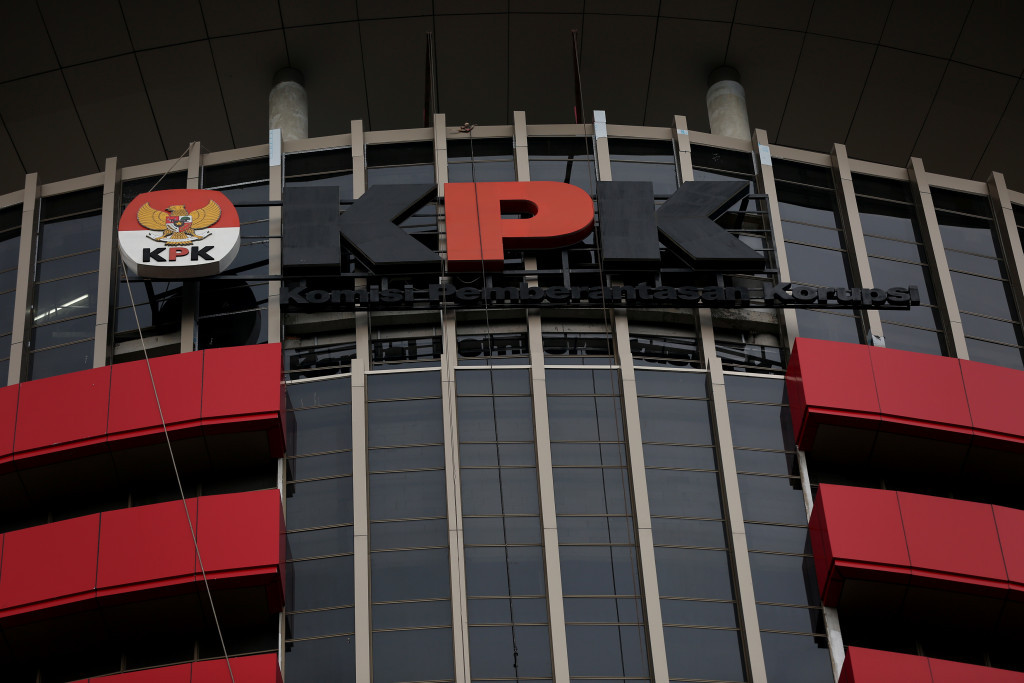Popular Reads
Top Results
Can't find what you're looking for?
View all search resultsPopular Reads
Top Results
Can't find what you're looking for?
View all search resultsKPK denies ‘fattening’ organizational structure
Change text size
Gift Premium Articles
to Anyone
T
he Corruption Eradication Commission (KPK) has brushed off criticisms calling its move to alter its organizational structure "fattening", with the antigraft body saying it has tried to balance the number new positions with those removed.
KPK spokesperson Ali Fikri said the newest Regulation No. 7/2020 on the KPK's organizational and work procedures technically only added seven more positions -- comprising both structural and non-structural positions or departments -- to the KPK, considering that the antigraft body also removed 16 posts.
The seven consisted of six structural posts, one at echelon I and five at echelon III, while creating one non-structural post for the special staff.
"The [structural change] has taken into account the number of new positions, the removed posts as well as the changing of names or nomenclature of positions, at both the deputy and the secretariat general level," Ali said in a statement on Sunday.
The KPK created two new positions at echelon I, but removed one post previously for the deputy for internal supervision and public complaints.
Meanwhile, the antigraft body removed 11 positions or departments at echelon II and created 11 new ones at the same time. At echelon III, the antigraft body added eight new positions or divisions and removed three positions.
The creation of two new positions at echelon I -- a deputy head of coordination and supervision, and a deputy head of education and community participation -- was mandated by articles 6 and 7 of the 2019 KPK Law, Ali said.
The two articles address the prevention of corruption, the treatment of perpetrators and the development of educational programs.
"We need to emphasize that special staff members are not expert staff. Thus, the position falls into the non-structural category,” he added.
The new regulation stipulates a maximum of five special staff members, whose function is to replace the KPK advisors -- previously limited to four people -- which have been removed in the revised KPK Law.
In total, the KPK added 24 new positions, both structural and non-structural posts, and removed 16 positions.
Ali assured the public that the KPK would continue to carry out its duties and functions in accordance with the principles of transparency, accountability and professionalism.
“We need to reorganize the organization in response to the mandate of the [2019] law and to continue to improve our performance going forward,” he said.
The antigraft body issued the new regulation on Nov. 6, which added 19 new structural positions or departments and one non-structural special staff team. The KPK argued the structural development was to increase the effectiveness and efficiency of task execution.
Observers have called the restructuring move "fattening" and baseless because the revised KPK Law did not stipulate establishment of new posts other than a KPK supervisory board.










